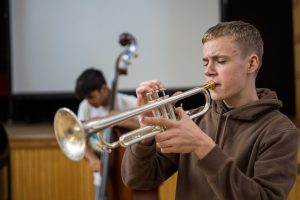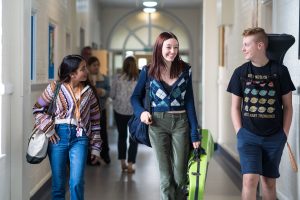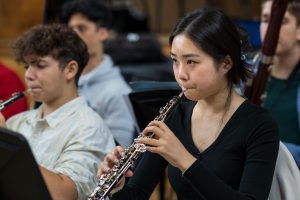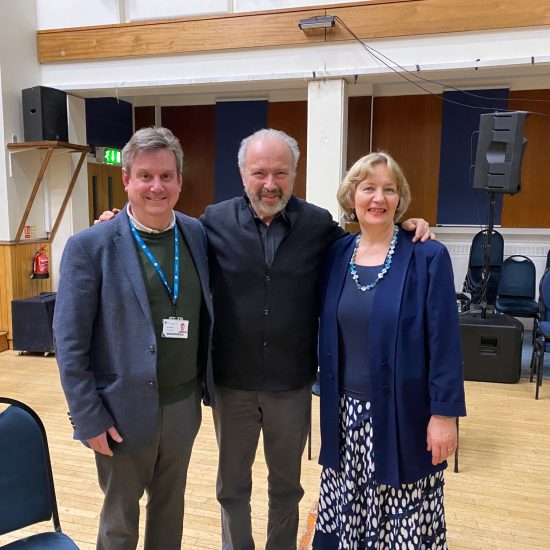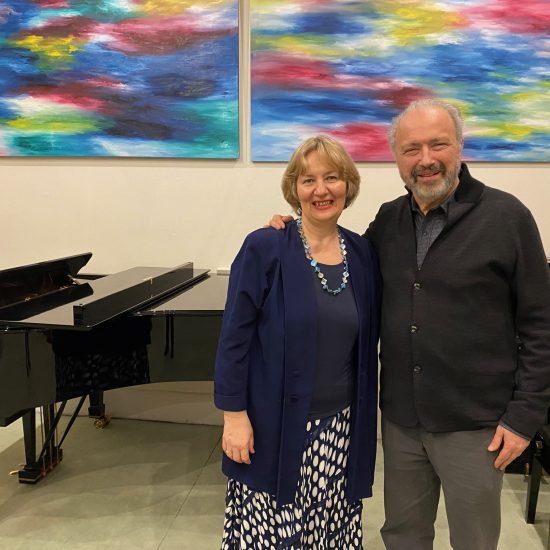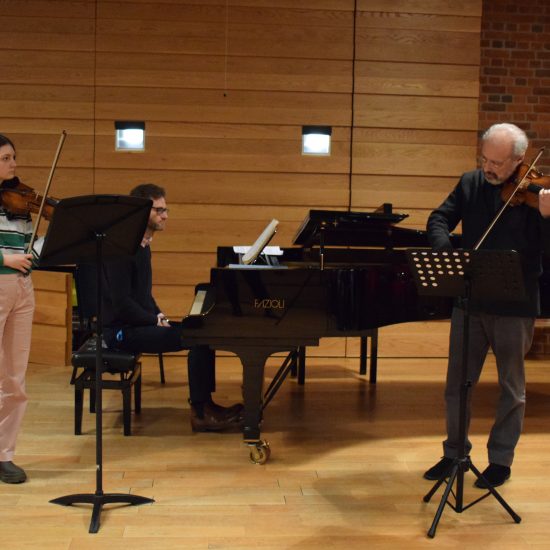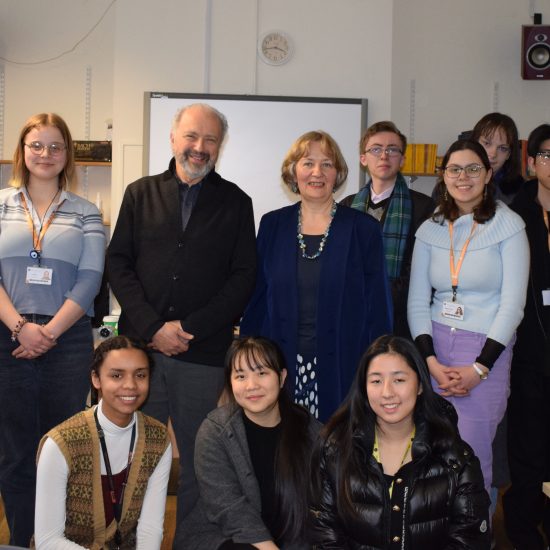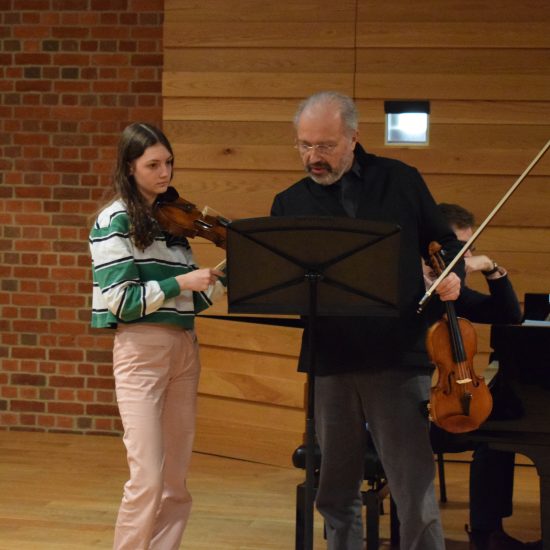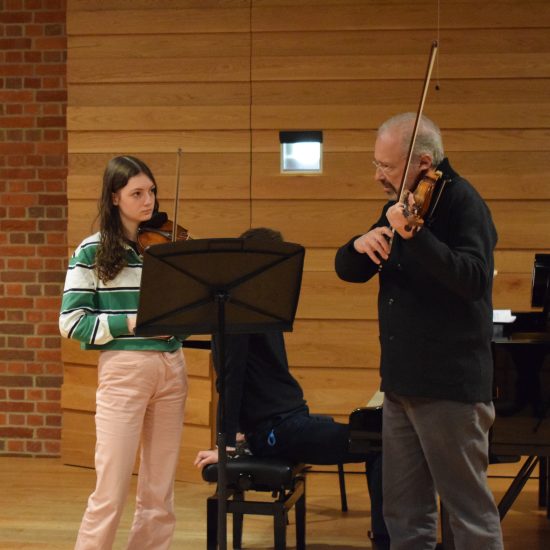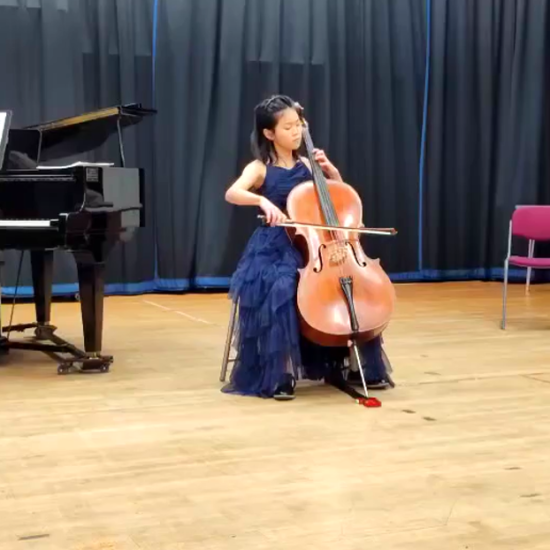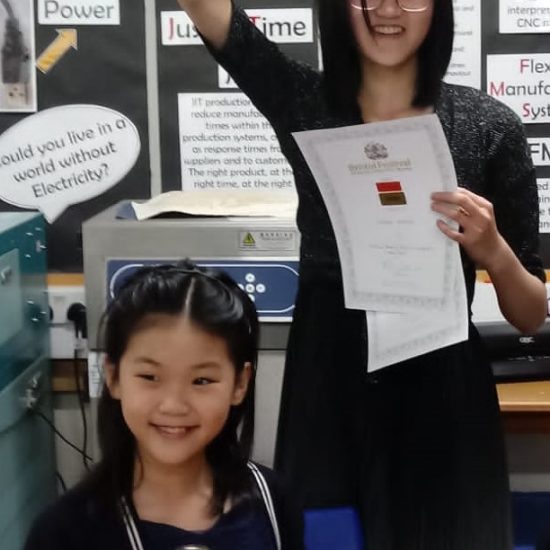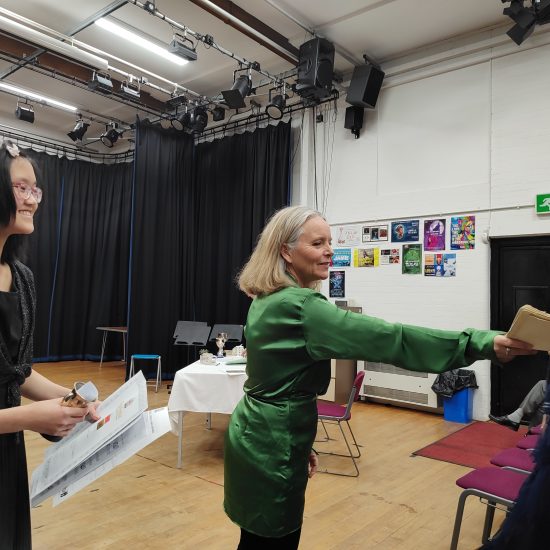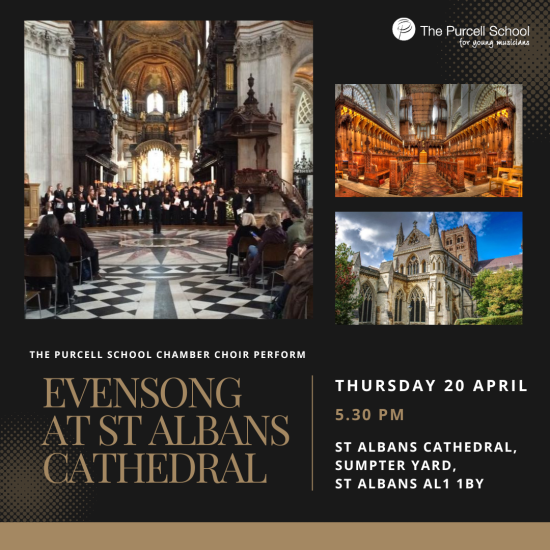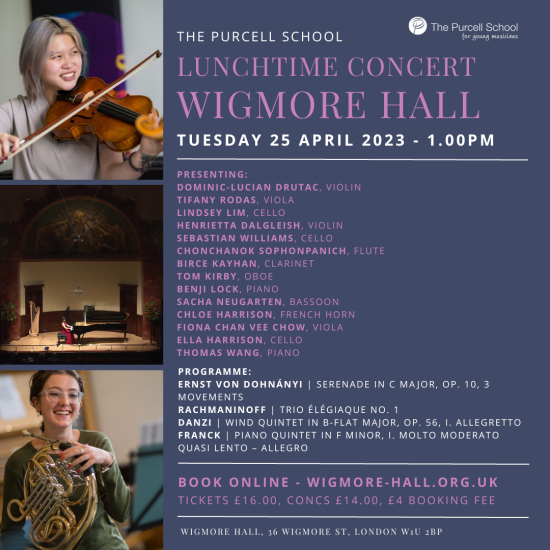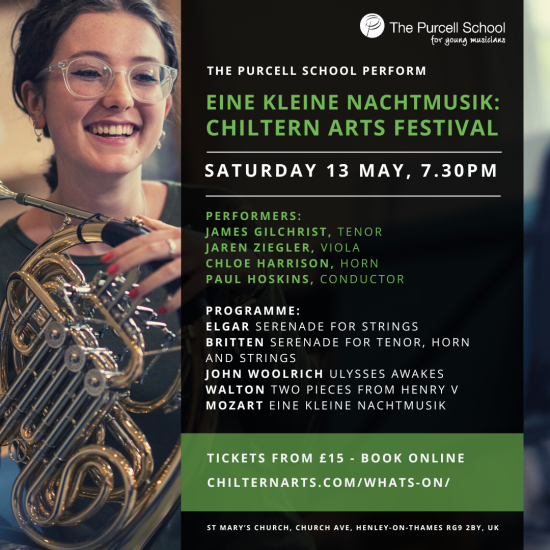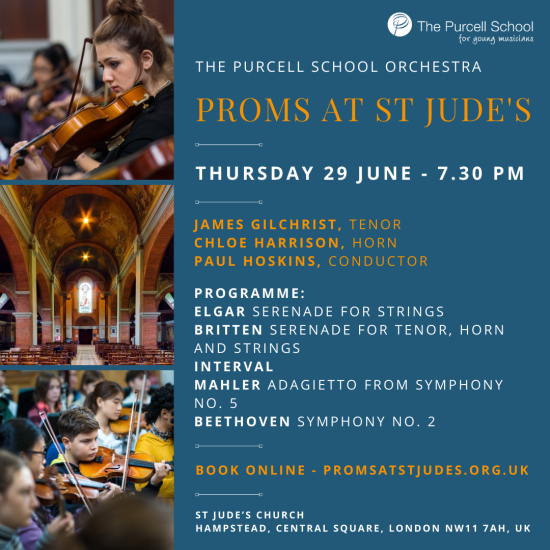Welcome to the latest edition of Purcell’s Weekly Highlights!
Dmitry Sitkovetsky Visits Purcell
On March 8, Dmitry Sitkovetsky, a world-renowned violinist, conductor and arranger visited our School. He attended a Sixth Form advanced aural class, presented a violin masterclass, gave a performance and engaged in an interview in front of the school’s community.
In the advanced aural class, he participated in all the activities, which included taking a two-part bitonal dictation, identifying an extended chord progression and answering the questions as part of the intellectual quiz, based on the identification of some of the most famous pieces of the violin repertoire and their performers. At the centre of the lesson was the analysis of the piece by Dvorak ‘Songs My Mother Taught Me’, transcribed by Kreisler. After two students, Dominic-Lucian (Year 12) and Benji (Year 13) played the piece in class, all the students participated in the analysis of the various stylistic and harmonic features of the piece. Inevitably, the conversation stemmed around Kreisler and his transcriptions. Sitkovetsky, who was the recipient of the 1st Prize in the 1st Kreisler competition shared many stories about this famous violinist, including the fact that some of Kreisler’s compositions were pastiches in the style of other composers. They were originally ascribed to Guiseppe Tartini, Antonio Vivaldi and others. It was only in 1935 that Kreisler confessed that he was the one who composed them.
During the violin masterclass Sitkovetsky worked with three of our students, Gabriella (Year 13), Hana (Year 13) and Shlomo (Year 13), who respectively played Korngold’s Violin Concerto, 1st movement; Bartok 1st Rhapsody and Tchaikovsky’s Violin Concerto, 1st movement. The students were skillfully accompanied by Debbie Shah and Daniel Swain. It was wonderful to see that the masterclass, which lasted three hours, and the consequent interview ‘In Conversation with Dmitry Sitkovetsky’ attracted a large number of students from various departments, not only Strings. During the masterclass Sitkovetsky offered the performing students valuable advice on the technical and musical aspects of the performance. He also emphasised the importance of knowing the history behind the composition that the students were playing.
We had a real treat at the end of the masterclass, when Sitkovetsky, beautifully accompanied by Daniel Swain, performed two pieces: Tchaikovsky arr. Kreisler – Chant Sans paroles and Brahms arr. Kreisler – Hungarian Dance no.17.
During the final part of the evening, ‘In Conversation with Dmitry Sitkovetsky’, Irina Walters asked questions based on Sitkovetsky’s book ‘Dialogues’ in front of an audience, who also participated in the conversation by asking their questions.
It was interesting and inspiring hearing about Dmitry’s early years, about his world-famous parents – the pianist Bella Davidovich and the violinist Julian Sitkovetsky, and what it was like performing with his own mother at the Carnegie Hall. Dmitry strongly believes that ‘A string player cannot become a full-scale musician without experiencing chamber music, especially quartets’. While studying at Julliard he had chamber ensemble lessons from Felix Galimir, who knew Schoenberg. The conversation moved to the topic of the importance of chamber music for students specifically and for musicians in general.
Another interesting quote from his book lead to the discussion about the necessity of aural training: ‘String players usually think in a linear way, horizontally, not vertically.’
It was fascinating hearing the story about Sitkovetsky’s Stradivarius violin called ‘Ex-Reifenberg’ and how on a few occasions it had been played by Jaques Tibo.
In 1988 Sitkovetsky played Shostakovich’s second concerto with the London Symphony orchestra with Rostropovich conducting. Irina Walters shared a story from her own days at the Moscow Conservatoire, when in 1990 the Conservatoire choir greeted Rostropovich who returned to the country after many years of immigration. Rostropovich climbed on stage and shook hands with each one of the 80 members of the choir. Irina later discovered that this gesture of greeting people, making everyone feel equal, came from Shostakovich. Sitkovetsky shared some interesting stories about the two famous musicians, including the one when Shostakovich called Rostropovich to come over. After about 40 minutes of sitting in a complete silence, Shostakovich thanked his guest, saying that he now felt much better . . .
Sitkovetsky talked about the importance of rests in music and in real life, that music can be heard not only in the notes, but also in the rests, and that music is the art of communication.
Of the visit, Irina Walters commented ‘It was a truly inspirational and fascinating evening! I really hope that this was just the beginning of our collaboration with Dmitry Sitkovetsky, and that we will be able to welcome him back soon! I would like to express my gratitude to Dmitry Sitkovetsky for making the day so memorable, to Charles Sewart and the school’s administration for their support in organising the visit.’



